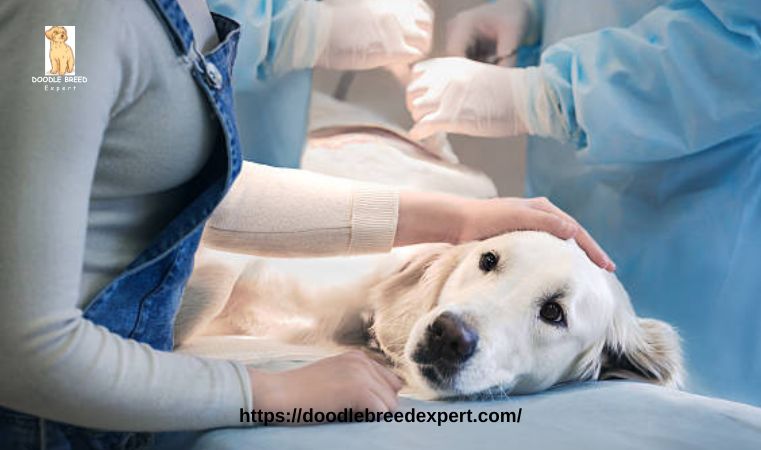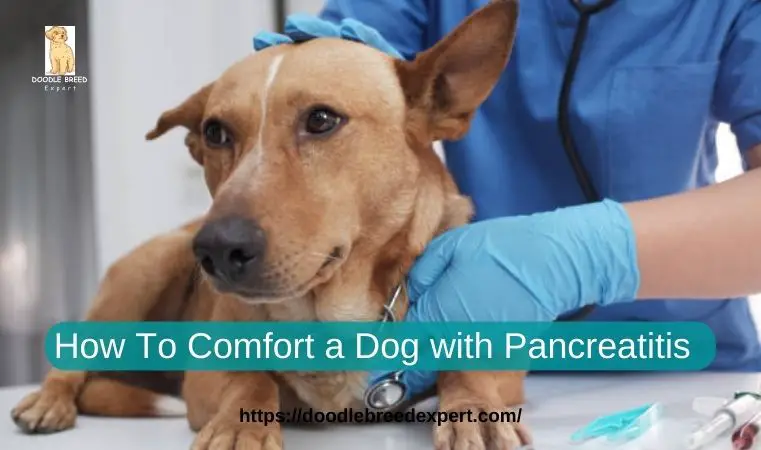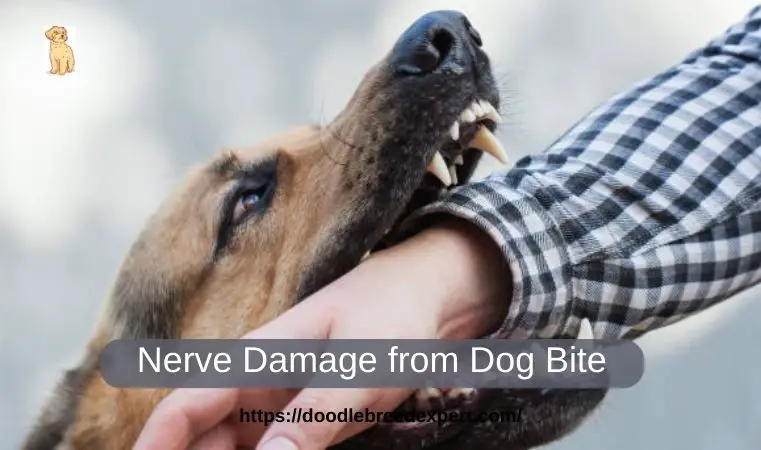How To Comfort a Dog with Pancreatitis? It’s always so heartbreaking to see the dog you love suffer in pain because of pancreatitis. The distress, such as diarrhea, vomiting, and loss of hunger, will leave you feeling utterly helpless. But, of course, remember that you are not alone in facing this challenge. Pancreatitis disease occurs quite commonly among dogs, and with proper care, your pet can recover and live a whole life. In this article, we shall guide you on caring for and supporting your furry friend during their recovery.
We shall guide you on the simple adjustments that need to be made in their environmental setting, in giving medication, and even in changes in their diet to help them get more comfortable. We will also discuss creative and fun ways by which you can give your dog all the love and attention, making them feel special and desperately need affection more than ever before. Your love and these things together can give your dog a good start towards recovery. Pancreatitis is a condition that describes inflammation of the Pancreas, a vital organ which is located near the stomach and the small intestine.
What Is Canine Pancreatitis?
The Pancreas has two significant functions in humans and dogs: to make digestive enzymes that help break down food in the small intestine, and it produces hormones, such as insulin, which controls your blood sugar. Pancreatitis in dogs is when the digestive enzymes are activated in the Pancreas rather than the small intestines, which is its natural activation point.
This can lead to damage to tissue, pain and inflammation. The signs of this condition include nausea, vomiting, diarrheas, pain in the abdomen and loss of appetite, among many others. Severe cases of pancreatitis can even result in organ failure and death.
The actual reason for dogs getting pancreatitis remains an ongoing investigation within the scientific community since factors such as obesity, certain medications, trauma, and diseases such as Cushing’s Syndrome might be contributing potential causes. Although these preventative and therapeutic strategies are still currently in development, there are some steps dog owners can take to help minimize the risk of pancreatitis in their pets.
What Causes Pancreatitis in Dogs?
Many factors can cause pancreatitis in dogs, and although it may occasionally present difficulties in the exact cause, numerous recognized risk factors exist.
- High-Fat Diet: Feeding your dog a high-fat diet could lead to pancreatitis. The quantity of fat may overstimulate the Pancreas, leading to inflammation and, eventually, pancreatitis. Therefore, it is necessary not to provide the dog with fatty table scraps but to feed them with low-fat dog food.
- Obesity: Overweight dogs are prone to pancreatitis since the excess fats in the body inflame and impair their Pancreas. Maintenance of a healthy weight through proper dieting, balanced feeding, and exercise on a routine basis prevent any form of pancreatitis and complications.
- Genetics: Some dog breeds, like Miniature Schnauzers, Yorkshire Terriers, and Cocker Spaniels are genetically predisposed to having pancreatitis. Dog owners with these particular breeds will have to take extra care and make more effort to prevent instances of getting pancreatitis with their pets.
- Abdominal Trauma: Pancreatitis can develop if your dog receives a blow to its abdomen or blunt trauma. Make sure to have proper safety measures and safeguard against such possible injuries.
- Pharmaceuticals: Certain drugs like corticosteroids could increase the risk of pancreatitis by blocking pancreatic activity and causing inflammation. Properly monitoring dogs on medication for any signs or symptoms of pancreatitis is necessary.
- Infections: Infections of a bacterial or viral nature may stimulate pancreas inflammation and give rise to recurrent pancreatitis. Similarly, humans need to get their dogs vaccinated against different infectious diseases, keep their dogs under proper vaccination coverage and help prevent any spreading caused by contagious diseases.
- Metabolic Disorders: Some metabolic disorders presenting, such as high blood calcium levels, can also predispose to pancreatitis. Working hand in hand with your vet to manage these underlying health conditions goes a long way in preventing pancreatitis.
Please note that sometimes pancreatitis may occur without apparent cause. While you will not be able to control all the risk factors, you can do some controllable things by feeding a healthy diet and keeping an eye on your dog’s weight. Regular tracking and adequate veterinary check-ups may help in the early recognition and treatment of pancreatitis, hence promoting your pet’s overall well-being.

What are the Signs of Pancreatitis In Dogs?
The primary symptoms that are likely to be associated with pancreatitis in dogs include:
- Appetite Changes Accompanied by Nausea: Nausea and loss of appetite are common side effects of pancreatitis in dogs. Vomiting is easily one of the most watered-down symptoms even a novice dog caretaker couldn’t overlook.
- Diarrhea: Pancreatitis may cause a dog to have diarrhea, which may be dark or watery.
- Abdominal Pain: Other clinical signs of pancreatitis may involve abdominal pain, which may be lethargy, restlessness, or aversion to contact.
- Loss of Appetite: Dogs at the effect of pancreatitis may show loss of appetite or less inclination towards food.
- Dehydration: The vomiting and diarrhea of pancreatitis could lead to dog dehydration.
- Fever: The inflammation in the Pancreas may cause fever, which is evident in dogs suffering from pancreatitis.
Pancreatitis will become fatal when jaundice sets in. Jaundice, the eyes, and skin yellowing will be observable.
It is to be noted here that these symptoms can vary regarding their severity and presentation among dogs affected with pancreatitis, with some showing only mild signs while others presenting with more marked distress. Therefore, early identification and immediate veterinary care are essential for effectively managing and treating pancreatitis in
Treatment: How To Comfort a Dog with Pancreatitis
Early diagnosis and treatment are of paramount importance in a case of pancreatitis. In mild cases, the treatment usually starts with a dietary change to a low-fat, easily digestible one that will reduce the workload on the Pancreas.
Indeed, analgesics may be put among the prescribed drugs in handling pain while those anti-inflammatory agents could abate inflammation occurring quickly in the Pancreas. Some drugs aim at controlling both diarrhea and vomiting. In an infection state, the aim of handling the condition is mainly according to antibiotic therapy.
In severe cases of the disease, dogs tend to develop excessive diarrhea and vomiting, which results in dehydration. These may warrant a few days of hospitalization, where the dog receives intravenous fluids that help to restore proper hydration and maintain the same. This intensive care helps manage the symptoms and provides the best chance to recover fully.
Owners of pancreatitis dogs should consult a veterinarian to build and follow a plan, for the severity of this illness is diverse, and the dog’s needs individually regarding treatment and recovery vary.
Is Pancreatitis in Dogs an Emergency?
How to Comfort a Dog with Pancreatitis? The truth is that canine pancreatitis is an emergency case, and it requires seeking the medical attention of a veterinarian as soon as possible. Whenever such a dog shows symptoms that it has been affected by pancreatitis through diarrhea, vomiting, and lack of appetite or being weak and also when experiencing pain in the abdomen, one needs to make sure they go for an emergency check-up at the veterinarian clinic. Of course, treatment for pancreatitis generally includes the provision of intravenous fluids, antibiotics if necessary, and painkillers, all aimed at aiding the healing of the Pancreas.
You could also put your dog in danger by self-diagnosing or self-medicating such situations. Caring veterinary care, loving, the best for your lovely pet gets high-quality and has the best potential for complete recovery. Timely veterinary assistance can dramatically alter the prognosis of pancreatitis in dogs.
Read Also: Nerve Damage from Dog Bite
Breeds Most Prone to Pancreatitis
While pancreatitis can be observed in dogs of any breed, some breeds are more predisposed to this condition. Those breeds include:
- Miniature Schnauzers: Although many breeds of dogs are affected by pancreatitis, Miniature Schnauzers easily succumb to it. They are also prone to hyperlipidemia caused by high levels of fat in the blood, which is likely to increase their chances of having pancreatitis.
- Yorkshire Terriers: These are another breed that’s predisposed to pancreatitis. They also have a high probability of inheriting hepatic shunts, which in turn can trigger the fangs of pancreatitis.
- Cocker Spaniels: Cocker Spaniels are at dramatically more risk of pancreatitis than many other breeds combined. They are also prone to liver disease, which can sometimes run hand in hand with a about of pancreatitis.
- Dachshunds: It is a breed that gets predisposed to pancreatitis. In addition, Dachshund has a predisposing factor towards obesity, which can contribute significantly to developing pancreatitis.
- Miniature Poodles: Pancreatitis is much more common in miniature poodles than in many dog breeds. They, too, can also suffer from liver disease and some metabolic issues associated with the liver, which can add to the situation of pancreatitis.
It should be noted that the condition can also affect all breeds of dogs. However, these breeds are predisposed to pancreatitis. Pet owners need to be aware of the signs and risk factors for pancreatitis so that they know to obtain prompt veterinary care for their dog if he demonstrates any symptoms of this condition – regardless of breed.
How To Comfort a Dog with Pancreatitis During Recovery
Support the dog in recovery from canine pancreatitis. Give plenty of guidelines to take care of and attention:
- Strict Dietary Control: Follow the dietary recommendations given by your veterinarian. Dogs suffering from pancreatitis generally respond well to a low-fat, easily digestible diet. Do not feed any table scraps or high-fat treats, as these may trigger an attack. Look for prescription diets or low-fat dog food available in the market that are specifically developed for aiding digestion.
- Keep your pet hydrated: Hydration ensures your dog recovers quickly. Always make a point of providing clean water for your dog to drink. Dehydration can prolong healing and worsen pancreatitis symptoms. You can also add water to your dog’s food to increase their moisture intake.
- Quiet Space: Sick dogs with pancreatitis may have difficulty feeling comfortable and are in pain inside. Please provide them with a warm and peaceful place to sleep. During your dog’s days of recovery, reduce rough play and noise levels in the home. If feasible, acquire a quiet place in the residence where the dog will have his quiet location free from the annoying sounds of daily activity in your house.
- Administer Prescribed Medications: Give and ensure you administer the prescribed medications to help your dog relieve all the pain it experiences due to painful joints. All forms of anti-inflammatory medicines that do not have any form of exaggeration in reducing the swellings and, therefore, enhancing pain relief may be given. The veterinarian should be consulted on natural alternatives if the patient is holistic-inclined.
- Keep and Observe Symptoms: Keep changes to symptoms in mind and what your dog did when a flare-up happened. This information can be helpful for your vet when trying to keep track of progress and tailoring the treatment plan. Monitor your pet for potential coexisting conditions, as pancreatitis is sometimes linked to other ailments.
- Display Lots of Love: The hard time of recovering needs emotional support. Give quality time with your dog, show tenderness, and uplift confidence by revealing your display of fondness. Learn your pet’s body language to know when they need downtime, and give them space without interrupting in their zone.
Your love and care and follow through your vet’s advice can help your dog improve from bouts of pancreatitis and maintain a happy life.

Conclusion: How To Comfort a Dog with Pancreatitis
How To Comfort a Dog with Pancreatitis? Dogs of any age and breed can be affected by acute pancreatitis. You need to identify the signs and symptoms due to low appetite, vomiting, diarrhea, and pain in the abdomen. In case you suspect you might have pancreatitis, you need to act by taking him to the vet immediately.
Preventing pancreatitis in dogs entails feeding the dog a low-fat, wholesome diet and sustaining an ideal weight for its size while avoiding table scraps and foods with a high quantity of fat. Regular veterinary check-ups and monitoring may be instrumental in detecting and treating pancreatitis in good time.
If your dog is diagnosed with pancreatitis, it is essential to work closely with your veterinarian to manage the condition to reduce the reoccurring risk of the incidence. This may mean availing special dietary supplements and watching your pet keenly for evidence of the condition.
FAQ: How To Comfort a Dog with Pancreatitis
How should a dog with gastroenteritis be cared for?
A dog with gastroenteritis should be starved of any food, but water should be made available if he wants to drink and not vomit straight afterwards. Once the vomiting has stopped, the diet should be small amounts of average, easily digestible, low-fat food. While your dog needs plenty of rest, short walks may be okay if they’re in the mood. Be aware of your dog’s body language – some ill dogs will appreciate extra cuddles, while others prefer to be left alone. Use medications prescribed by your veterinarian, including anti-nausea medication and pain medications, which can be used to make your dog more comfortable.
How many canines succumb to pancreatitis annually?
In most cases, the prognosis for mild to moderate pancreatitis dogs is good. In severe pancreatitis, it may be 33 percent of deaths. On diagnosis, the dog should be treated promptly.
What is the recovery period for canine pancreatitis?
Recovery time for a dog with pancreatitis may vary. Generally, mild cases usually require hospitalization of two to four days. However, normalcy is regained when the dog leaves the hospital in most cases within about one to two weeks. Dogs with severe pancreatitis may need hospitalization for as many as two weeks.
What homemade foods are suitable for dogs with pancreatitis?
Diet changes are an essential part of dog pancreatitis treatment. Your vet might recommend a low-fat prescription diet that won’t unnecessarily tax your dog’s digestive system while still supplying his basic nutritional needs. Always consult your veterinarian before preparing homemade meals for dogs with pancreatitis, but a few generally safe ingredients to use include:
- Skinless chicken
- Lean ground beef
- Cooked egg yolks
- Boiled rice
- Oats
- Barley
- Cottage cheese
- Sweet potatoes
Do dogs with pancreatitis need treats?
Give fewer treats to dogs suffering from pancreatitis or those at risk. Consult a veterinarian on the type of low-fat treats they would recommend. Try also looking up healthy homemade low-fat treat recipes online if you have the time to bake.
Does yellow canine excrement indicate pancreatitis?
Yellow dog feces may have several causes. In dogs suffering from chronic pancreatitis, similar to yellow stool, it can be greasy, strong-smelling, and bright. If you are worried about the color of your dog’s feces or its consistency, a consultation with your veterinarian would be advised.
References:
- Smargiasso, C. (2023, October 24). How to Comfort a Dog with Pancreatitis? Petfeed – Pet Care Tips, How-to Guides, Funny Stories, Comics, and Videos. https://petcube.com/blog/dog-pancreatitis/
- Hofve, J. (2023, September 29). Pancreatitis In Dogs: Treatment And What To Feed – Dogs Naturally. Dogs Naturally. https://www.dogsnaturallymagazine.com/manage-pancreatitis-in-dogs/
- Gardner, A. (2009, July 16). Pancreatitis in Dogs: Symptoms and Treatments. WebMD. https://www.webmd.com/pets/dogs/dog-pancreatitis-symptoms-and-treatment






